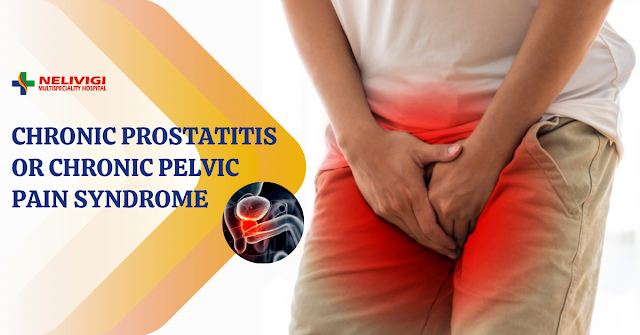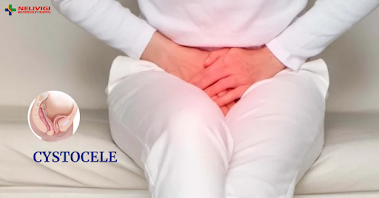Chronic Prostatitis Or Chronic Pelvic Pain Syndrome Treatment in Bangalore
Chronic prostatitis is one of the common diseases affecting men. It is a chronic debilitating condition which in its severe form can severely damage the patient’s quality of life. It has a wide spectrum of symptoms ranging from minor pain and irritation to severe urinary and bowel problems.
Symptoms
The patient will have multiple symptoms. They can present as a single complaint or may be clustered together. They are:
Pain in the penis. The pain can be in the root or shaft of the penis. It can be shooting in nature or it can be dull and constant. It can be mild or severe.
Pain in the perianal region: This may be present always or could be related to defecation. Sometimes it can be debilitating and doesn’t allow the patient to sit because of which he has to shift position constantly.
Bowel symptoms: The patient may have the urge to pass stools repeatedly and has a sense that it is incomplete. Many suffer from constipation.
Urinary symptoms: These symptoms predominate and cause the maximum distress to the sufferer. The patient will have the constant urge to urinate but each time he passes urine, it will be only a few drops or scanty in quantity. He feels some urine is still left in the bladder but when he goes to void again, he feels incomplete emptying of the bladder. This results in a large number of visits to the toilet and severe tiredness because he may not be able to sleep at night. There also may be burning sensation and pain while passing urine.
Sexual symptoms: Decreased libido, erectile dysfunction, premature ejaculation, and painful intercourse are the common complaints.
Non-specific symptoms: Many complain of pain in the groin, inner aspect of thighs, scrotal and testicular pain, low backache, fatigue, malaise, etc. The cause of these symptoms is unclear.
Causes
The exact cause is unknown. Many patients will have documented infection of urine and the prostate. However many patients may only have inflammation of the prostate but no documented infection. A further large group of patients will neither have inflammation or infection of the prostate. This group of patients are grouped under the CPPS category (Chronic Pelvic Pain Syndrome) which is indicative of the uncertain nature of the disease.
Investigations
Basic tests like Complete Blood Count, urine routine and microscopy, and also culture and sensitivity are done. Many times the urine test does not show any bacteria but may only show pus cells. The urine sample is given after prostatic massage so that it is more representative of prostatic organisms. Ultrasound of the abdomen and sometimes transrectal ultrasound help in further evaluation. Semen culture is also useful when these tests are normal.
Basic tests like Complete Blood Count, urine routine and microscopy, and also culture and sensitivity are done. Many times the urine test does not show any bacteria but may only show pus cells. The urine sample is given after prostatic massage so that it is more representative of prostatic organisms. Ultrasound of the abdomen and sometimes transrectal ultrasound help in further evaluation. Semen culture is also useful when these tests are normal.
Chronic Prostatitis Treatment in Bangalore
It is difficult to treat this condition. The mainstay of treatment is antibiotics. These are dependent upon the culture and sensitivity report of urine and prostatic secretions. However empirical antibiotics are given when the organism cannot be identified. The other drugs are alpha-blockers like tamsulosin. These drugs relax the prostatic smooth muscles and help in easing urine flow. NSAIDs also help in relieving pain and discomfort. Other commonly used drugs are amitryptiline and GABA. If these treatments fail then biofeedback, relaxation techniques and myofascial trigger point release are tried and useful in many patients.
However, it must be emphasized that chronic prostatitis or Chronic Pelvic Pain Syndrome is a chronic recurrent illness with remissions and exacerbations. It is very important to adequately counsel the patient about the long course of this illness so that he does not experience bouts of depression which many patients experience. The family members also need to be counseled so that they morally support the patient. The good news is almost all the patients become symptom-free over the long term.




Comments
Post a Comment